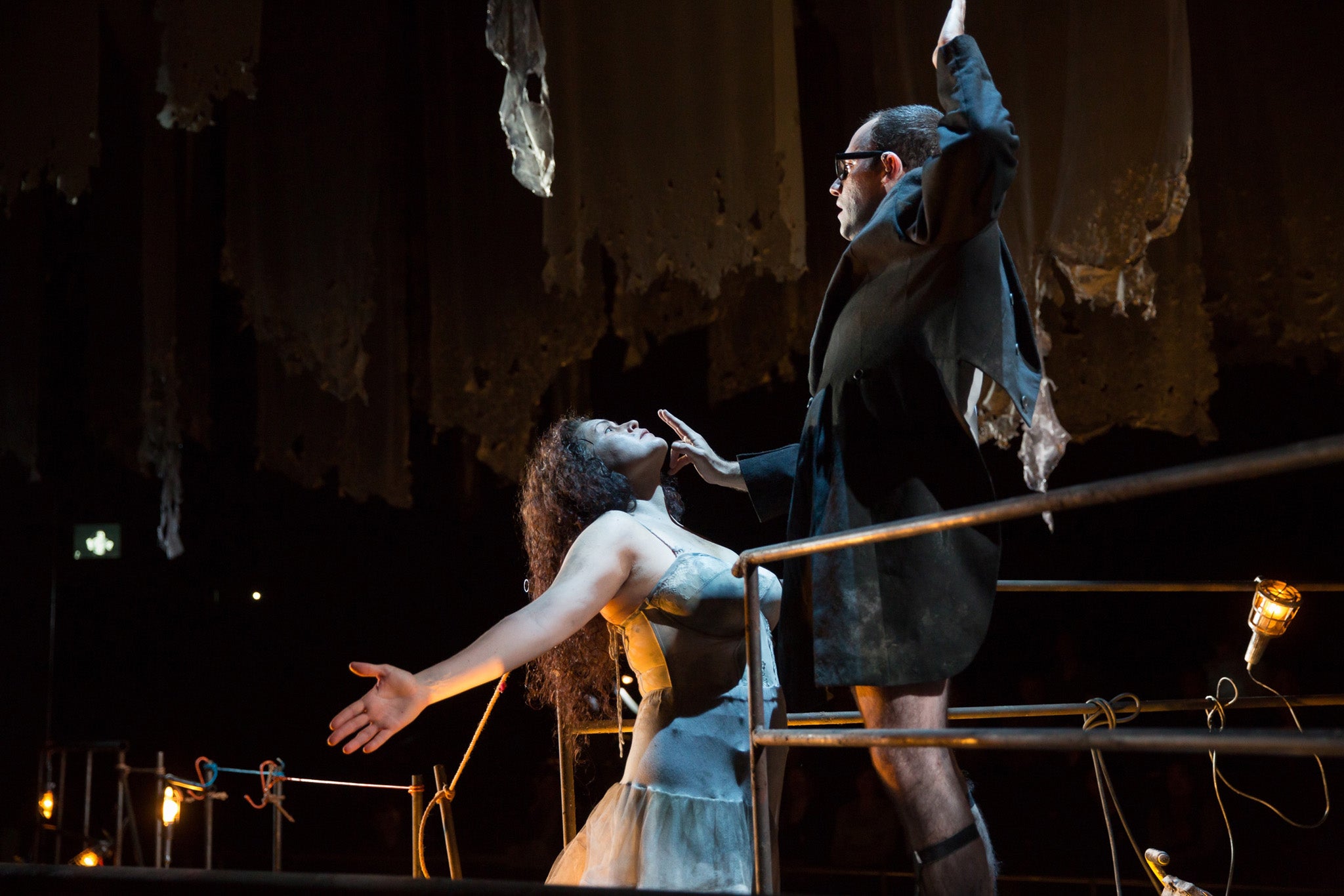Quartett, Royal Opera House's Linbury Theatre, review: 'A shameful waste of money and talent'

The staging for Luca Francesconi’s Quartett, with a platform bisecting the auditorium beneath a forest of torn gauze, was intriguing.
The composer-librettist had nailed his colours to the mast: taking Heiner Muller’s two-hander based on Les liaisons dangereuses, he would get the protagonists to perform ‘polyphonically’, playing not only each other but also their victims.
And as the lights went up on a woman en deshabillee at one end of the platform, beguiling recorded sounds came as though blown on the wind, and were gracefully taken up by the London Sinfonietta under Andrew Gourlay’s direction: this composer clearly liked perfumed instrumental effects.
But did he like voices? When the woman (Kirstin Chavez) began to sing, it was in painful atonal gasps, which were answered in jagged, jerky phrases by a man in dirty underclothes (Leigh Melrose) who had surfaced opposite her. From then on, things just got worse.
The surtitles – for those few in the audience able to see them – were wall-to-wall pseudery, and the characterisation was crude beyond belief, with the singers made to bawl at each other about frustration, impotence, and putrefaction – and sometimes mount each other - with just the occasional (very necessary) break for a swig of water.
No, this composer had no interest in voices at all, and this staging of his ‘opera’ was a shameful waste of money and talent.
Join our commenting forum
Join thought-provoking conversations, follow other Independent readers and see their replies
Comments
Bookmark popover
Removed from bookmarks